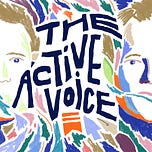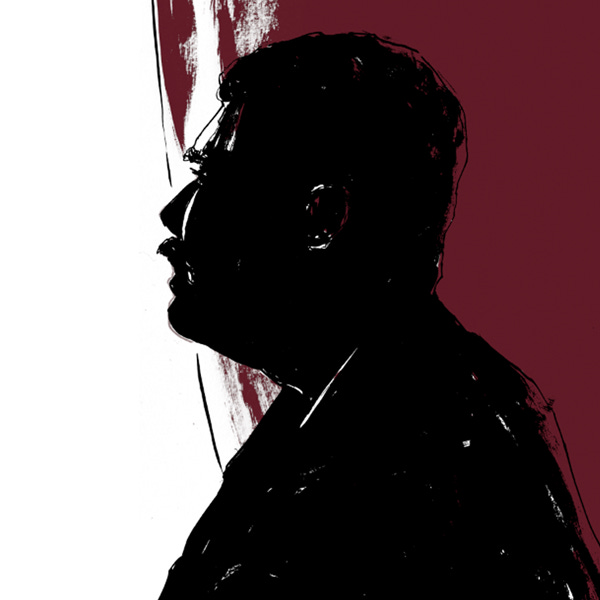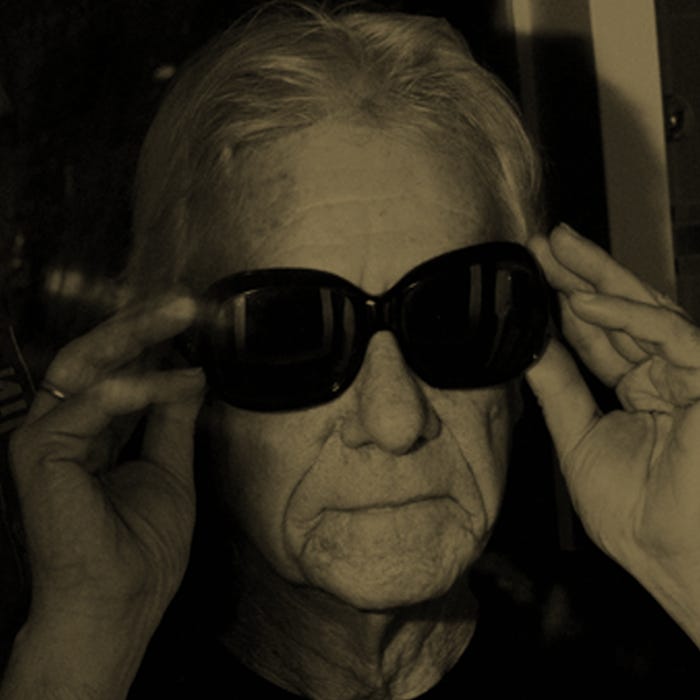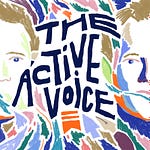But not being in New York has its upsides. Perhaps most importantly: it has helped Ted retain the mindset of an independent outsider, less vulnerable to the groupthink that can overtake the modern media. From his perch in Austin, Texas, and previously in Silicon Valley, the author of 12 books on music and co-founder of Stanford University’s jazz studies program sees things that his peers tend to miss. On his Substack,
, Ted has taken the music industry to task for its failure to discover and nurture new music; he has argued that despite a time of democratized access to publishing, society is missing a counterculture; and he has pointed to indicators of Facebook’s impending collapse. Occasionally, he’ll write a deeply researched series about a figure from rock history that would never find its way into a mainstream outlet.In this conversation for The Active Voice, we discuss how internet platforms are changing our cultural industries for better and worse, how the rise of the likes of YouTube and Substack are helping creators subvert the gatekeepers to outshine traditional channels, and how social media has become a sameness machine—a perpetrator and victim of crowd psychology based on people’s intense need to be just like everyone else. “Platforms like Twitter, which should be independent voices saying fresh things, start to feel like everybody’s shouting the same thing all at once.”
The way out? Find the person who can rise above the fray. Find the honest broker…
Quotes from the conversation
On finding a name
The honest broker’s only key to success is trust. People trust the honest broker. And the honest broker is not out for the short-term game; it’s a long-term game. The honest broker plays a long-term game building relationships and trust, and that’s how you succeed.
On writing for the reader
There are all sorts of, I call these corruptions or distractions, use whatever words you want. I believe the safest path, and what’s been the key to my success really, is I write for the reader and I trust the reader. And I assume my reader is smart, I assume my reader is discerning. And I also assume my reader has very little tolerance for bullshit.
On corrupting trust
People have lost the ability to distinguish between journalism and advancing an ideology. I believe that corporate media outlets have become very cautious. I also believe corporate media outlets play to their audience. They decide what their audience is, and then they will tell that audience what they want to hear. And that might very well be enough to keep them in business, but it further erodes trust.
On the perception of music journalism
People think that’s one of the perks of being a music writer is you hang out with Mick Jagger on the corporate jets, which may not have been in my destiny anyway. I’ve never been invited on a corporate jet.
On never living in New York
I’ve got a very relaxed, easygoing mentality. I have a very laid-back way of life. I need to be in an environment where I feel nurtured and supported that way. And so for me, the reason I didn’t move to New York was mostly psychological.
On rejecting power
I’m thinking, well, I’ll do that. I’ll be like the Secretary of State or I’ll be like a U.S. senator. I had all these dreams in like 48 hours. And then I just said, “I don’t want that, though. I don’t want a high-powered career. I don’t enjoy power.”
On moving from business to music
I felt guilty I had got an amazing training in analyzing financial situations, consumer markets, and futurism, predicting the future. I had learned from the best people at Oxford, Stanford Business School, at McKinsey, at BCGI. I had this great training, and I was just walking away from it.
On how the internet changed music
The first wave of innovation in the internet was destructive to music culture. It destroyed the physical album, it destroyed the incomes of many musicians.
On going independent
I got to a certain point, I said, “I don’t want to deal with these gatekeepers anymore. I will do anything to get away from dealing with the gatekeepers.” And so now I’m on Substack and I’ve got direct contact with my readers, and it’s amazing.
On being on social media
I’ve had to work hard to enjoy it, which means not following the toxic people, blocking the trolls. It’s a constant labor to block out the ugliness on social media.
On TikTok’s shelf life
Success on TikTok is not translating over to other platforms. Two years ago, it looked like it was, but nowadays you have a TikTok hit, it doesn’t really cross over to Spotify or YouTube anywhere near how it once did. My belief is it’s because TikTok has peaked. And people are dubious when I say that. They go, “Well, no, TikTok is hot and new. How can it be old and tired if it’s hot and new?” And I say, “Well, we reached this point in the cycle where markets get saturated faster,” particularly TikTok, which is depending on 15-second videos.
On social media mimicry
In my case, I believe a lot of what we see now, even though the internet should allow thousands of independent voices to flourish, despite that, there’s a certain monolithic quality and sameness. And I believe it’s because of imitation and mimetic desire. And so platforms like Twitter, which should be independent voices saying fresh things, start to feel like everybody’s shouting the same thing all at once. It’s crowd psychology.
On personal attacks
With the exception of Kenny G, I never insult, attack, mock, ridicule, or try to go after anybody as an individual. I never start a fight. I have been on Twitter for 12 years; I have not started an argument once.
On keeping honest
When you see a toxic moment in your culture and things going badly, all you can do is say, “I’m going to hold on to what’s decent and good and kind and compassionate and caring,” and at least try to stand up there when maybe other people will stand up there with me.
On writing as a vocation
If in fact you want to have a life of contemplation, a life that’s quiet and out of the stream of things but also to have a positive impact, inevitably you become a writer.
On writing as having power
I believe for a writer, the goal is to have the power to persuade. That’s a healthy kind of power. And it only works if people trust you and you’re honest and what you say makes sense and delivers results over the long term.
On advice for aspiring writers
You need to learn to write. And you could only do that by writing constantly. [...] The third thing is to learn, because you’re going to have to write about something, and you need to know about it.
Ted’s recommended reads:
Show notes
Subscribe to The Honest Broker on Substack
Find Ted on Twitter, Instagram, and his website
[02:39] The story behind the name, The Honest Broker
[08:41] Journalism and the media
[11:17] Avoiding politics
[12:10] Perks of being a music writer
[15:27] On being the outsider
[17:02] Ted’s background
[21:12] How the internet destroyed music culture
[26:56] The role of TikTok in the music industry
[33:09] Mimetic desire, René Girard, and social media
[36:21] The exception of Kenny G
[40:02] Choosing the writing life
[44:05] Advice to young writers
If you’re inspired by Ted and want to start your own Substack, you can get started here:
The Active Voice is a podcast hosted by Hamish McKenzie, featuring weekly conversations with writers about how the internet is affecting the way they live and write. It is produced by Hanne Winarsky, with audio engineering by Seven Morris, content production by Hannah Ray, and production support from Bailey Richardson. All artwork is by Joro Chen, and music is by Phelps & Munro.
Postscript
























Share this post